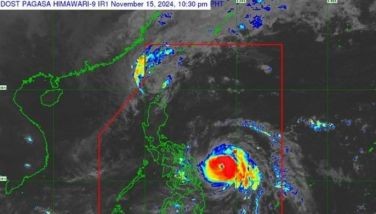Drilon vows to re-open debate on death penalty
Sen. Franklin Drilon promised yesterday to re-open the debate on the law that restored capital punishment for heinous crimes during his nine-month term as Senate president.
![]() But he acknowledged that his term is woefully short to complete a review of the
controversial law, under which over a thousand criminals have already been
sentenced to death since it was enacted in 1994.
But he acknowledged that his term is woefully short to complete a review of the
controversial law, under which over a thousand criminals have already been
sentenced to death since it was enacted in 1994.
"I myself (took no) part in the (first) debates," Drilon told reporters. "I want that thing debated although I seriously doubt if there is enough time to complete it."
He made the statement in response to a call from Senate Majority Floor Leader Francisco Tatad that senators should now reassess the relevance of Republic Act 7659, or the death penalty law.
Tatad himself noted that it took two Congresses before the death penalty law was passed, beginning with the Senate under the presidency of then Sen. Jovito Salonga.
"This is a priority issue that should again be debated in the halls of the Senate," said Tatad, who is known for his advocacy of Church-supported issues.
The 1987 Constitution abhors capital punishment in general, but provides an exception for heinous crimes.
The law imposes capital punishment on a number of heinous crimes, including treason, piracy and mutiny on the high seas, qualified piracy, qualified bribery, parricide, murder, infanticide, kidnapping and serious illegal detention, robbery with violence against or intimidation of persons, destructive arson, plunder, drug dealing and rape.
On Feb. 5 last year, 35-year-old house painter Leo Echegaray became the first Filipino in two decades to be executed on a judicial order for the rape of his teenage stepdaughter.
A few weeks ago, President Estrada agreed to impose a moratorium on all judicial executions at the request of Roman Catholic Bishop Teodoro Bacani.
- Latest
- Trending




























